A Former Hollywood Executive Finds His Next Act in Napa Valley
Meet the producers.
-
CategoryFarm + Table, Makers + Entrepreneurs, Wine + Beer
-
Interviewed byBonnie Graves
The old joke goes like this: “How do you make a million dollars in the wine business? Just invest 10 million.” I am reminded of this adage whenever folks ask me if I want to be a winemaker or own a winery someday. (I am a sommelier by background, and we never make money … although we do drink well.) While many envision a relaxing, bucolic lifestyle of seasonality and hospitality set amid rolling, vineyard-clad hills, the reality is often much harsher.
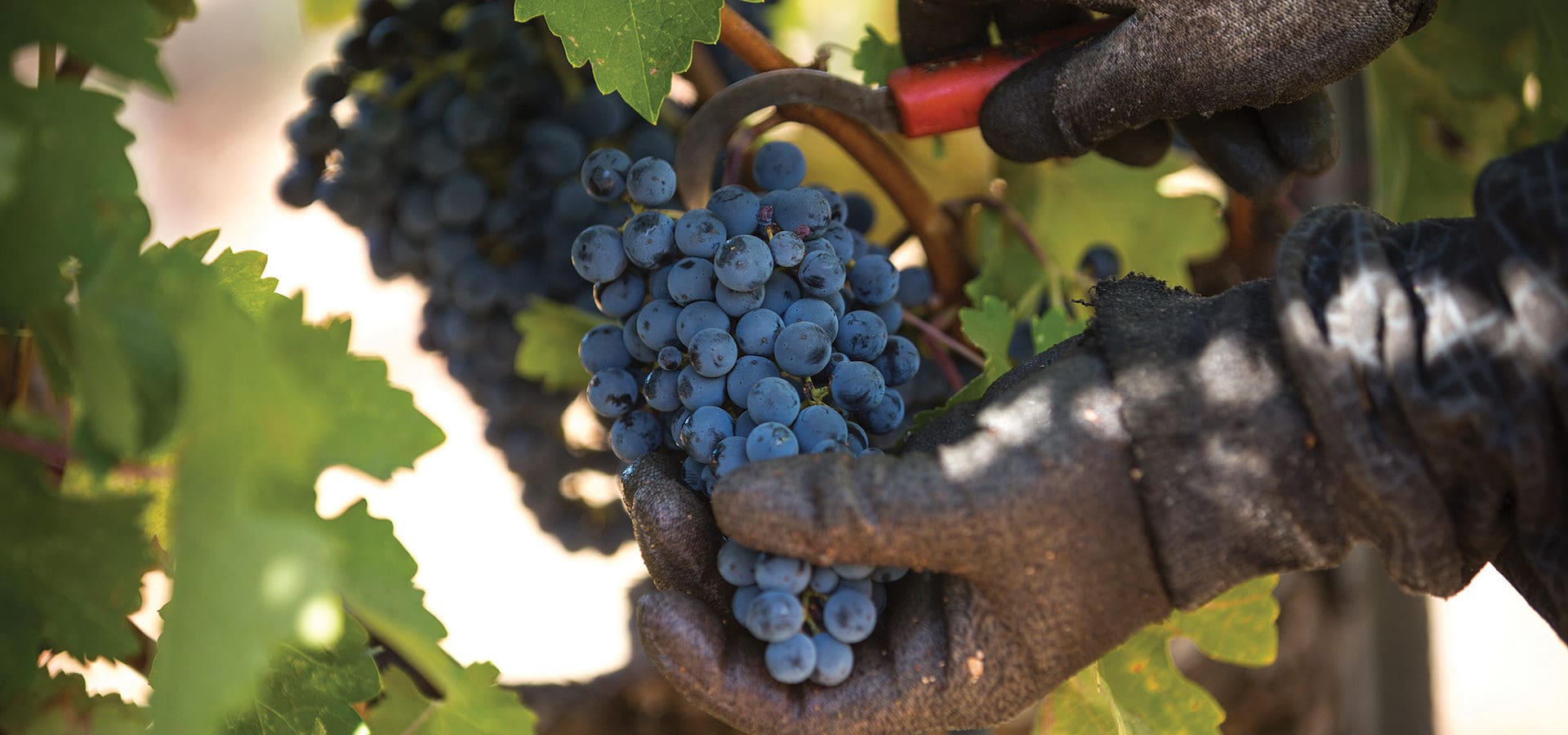
The vagaries of a product defined by vintage are legion: too much rain, not enough rain, hail, mold, rot, drought and, increasingly here in California, wildfire. And that’s before one considers just how crowded the wine market is, with increased globalization and expanded delivery mechanisms. Then you add the byzantine, three-tier distribution system here in the United States and decide that maybe you’ll just buy someone else’s bottle of wine and enjoy it on your own time and dime.
It does take capital to make it in the wine industry, particularly in a market like Napa Valley. In many ways, Napa’s specific successes over the last 25 to 30 years have made it increasingly cost-prohibitive to do business there. With more than 45,000 acres now planted, Napa Valley is crowded both literally and figuratively. So how is a savvy winery owner able to make it there?
Rich Frank is the guy I often think of when pondering this question. A veteran of the entertainment industry in Southern California—he is a former president of Walt Disney Studios and Paramount Television Group—Rich does fit the mold when it comes to the role of affluent career-changer, although now it’s increasingly tech titans from Silicon Valley who bring the big cash to wine country.
What distinguishes Frank Family Vineyards is not just longevity as they celebrate 25 years in Napa. It’s what I think is best described as authenticity. A tasting appointment at Frank Family is easily one of the most coveted in Napa Valley, and the winery greets its customers like cherished guests.
The ethos at Frank Family is always one that emphasizes family. Rich and his wife, Leslie, herself an Emmy Award winner, have now permanently relocated to Napa Valley, and their charitable pursuits reflect a commitment to the community that they’ve chosen to call home. Paying it forward is still one of the very best ways to build a loyal customer base. It’s also helpful to make delicious products.
We caught up with Rich on the heels of Festival Napa Valley, which he and Leslie co-chaired this past summer, and just before the annual chaos of harvest. Even though he’s a grandfather with grandkids who are rapidly growing up, this veteran winemaker has no intention of slowing down anytime soon.
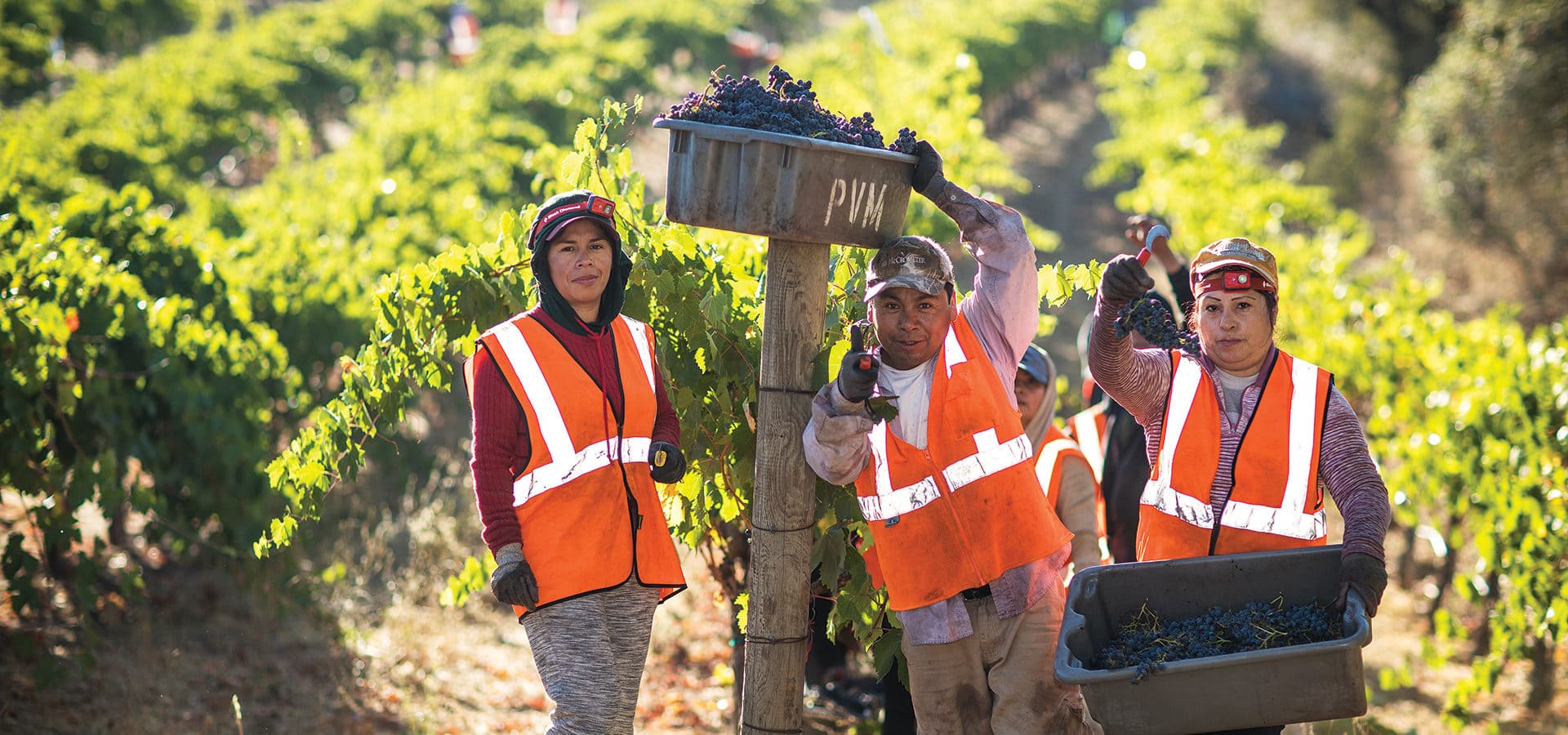
You recently celebrated your 25th year in Napa Valley. What have been the biggest changes you’ve seen?
Rich Frank: Those visiting Napa Valley today have become much more sophisticated, and they seek sophisticated experiences—ones that offer a direct connection, even an emotional connection, to the winery. Visitors don’t just want to belly up to a stand-up tasting bar anymore. Because of this, we’re accepting fewer tasting appointments so that we can offer heightened experiences. Instead of a tasting room staff that is focused on numbers and sales, we hire wine educators—people who are passionate about wine, history and storytelling.
It is also so important to stay relevant and fresh. There has been so much consolidation in distribution that many wineries are focusing on selling direct. Everyone is competing for the mindshare of this visitor market, so experiences must be great or you may as well close your doors. My wife, Leslie, has amazing taste and consistently stays ahead of the curve with the atmosphere here—from the grounds to the recently redesigned tasting room created by Erin Martin. We have many tasting areas—from a living room atmosphere inside to a sublime patio experience that is awesome in both winter and summer months. We have heat lamps and offer blankets in the winter—people just don’t want to leave when they visit.
And the wine?
RF: Guests can choose from a variety of tastings—from a vineyard-specific tasting from our crown-jewel vineyard, Winston Hill, to a tasting featuring cheese and charcuterie pairings from Michael Chiarello’s restaurant Ottimo.
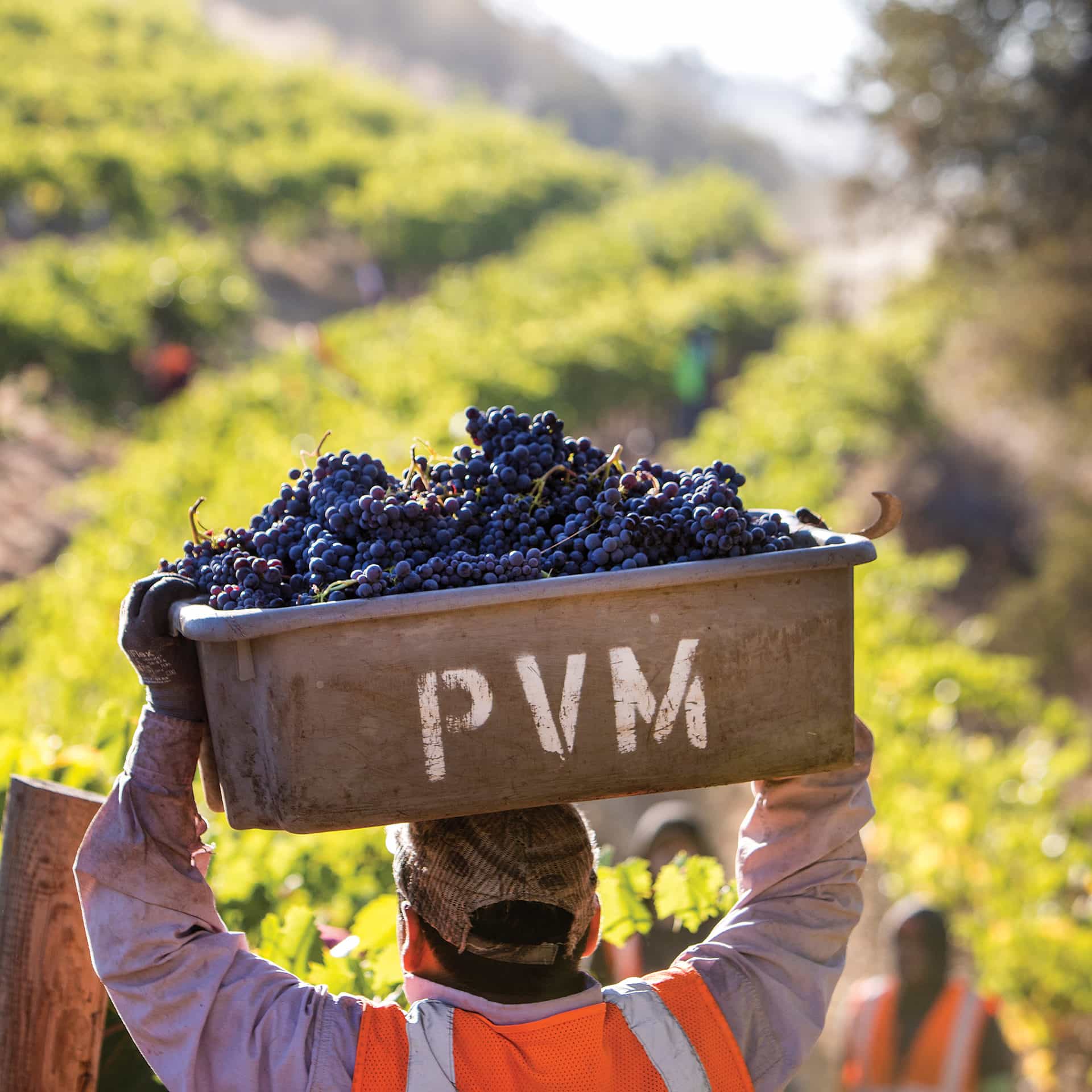
What parallels do you see between the film business and the wine business? Is one more challenging than the other?
RF: I’ve always understood that, more than anything, the bottom line depends on the quality of grapes in the wine. I compare a grape to a movie script: If you don’t have a good script, you don’t have a chance of success. That said, I’ve invested heavily in buying premium vineyard land—mostly in Rutherford and Carneros—in order to secure the quality of my wine. We have more than 250 planted acres today.
Once you have a great script, you need a good director, and I found that in our GM and winemaker, Todd Graff. He joined us in 2003 and is incredibly talented.
I also firmly believe that you should make what you like, not what other people tell you to do. When I was head of Disney Studios, for nine years we never made a horror film. Frank Family will never make a California sauvignon blanc!
Your focus is very much on family at Frank Family. Do you anticipate handing over the winery to your grandkids someday?
RF: We get calls once a week asking, “Do you want to sell?” We don’t, and we’re not even interested in talking about it. Leslie and I recently sold our home in LA and moved to Napa permanently. We’re becoming deeply entrenched in the community. Leslie is on the board of Festival Napa Valley, and we were both chairs of this year’s Collabria Care Gala, which focuses on hospice care. We love running the winery day to day, so the thought of letting go—even to our grandkids—is unimaginable right now! Our kids have thriving careers and love to visit.
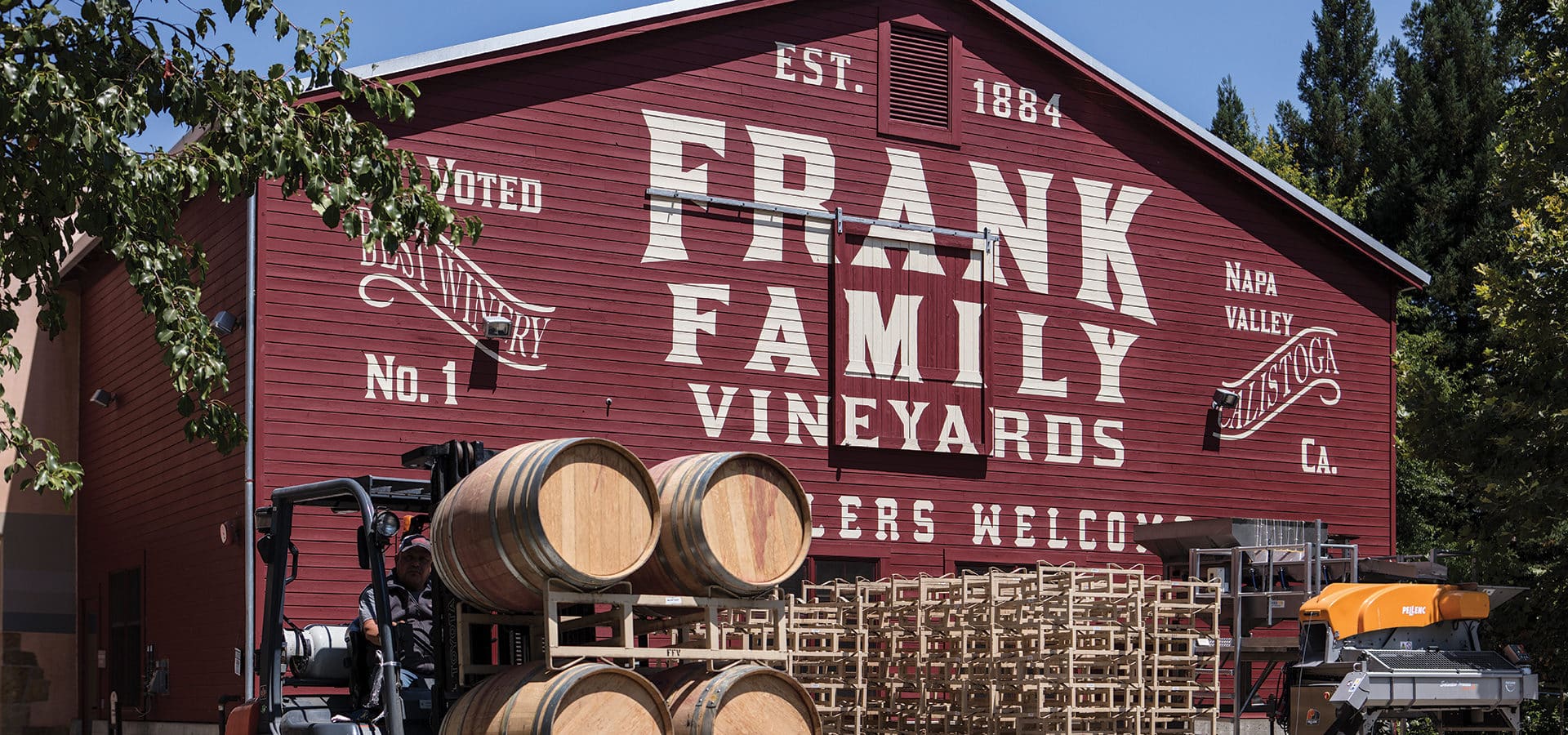
How does that personal passion trickle down to the bottle?
RF: We’re focused on what we do. It is so important that we can make decisions based on our values. Corporate wineries are pressured to show their worth on spreadsheets for shareholders, and sometimes quality suffers in that atmosphere. We’re very fortunate. After the fires of 2017, we decided not to bottle juice from a single grape that was picked after the fires started on October 8. Financially it was a difficult decision, but we did not have to think twice about that. Our name is on the bottle.
It’s all about treating people great, making them feel at home and making them feel like a part of the family. Generations are returning to our tasting room—as guests and now as employees.
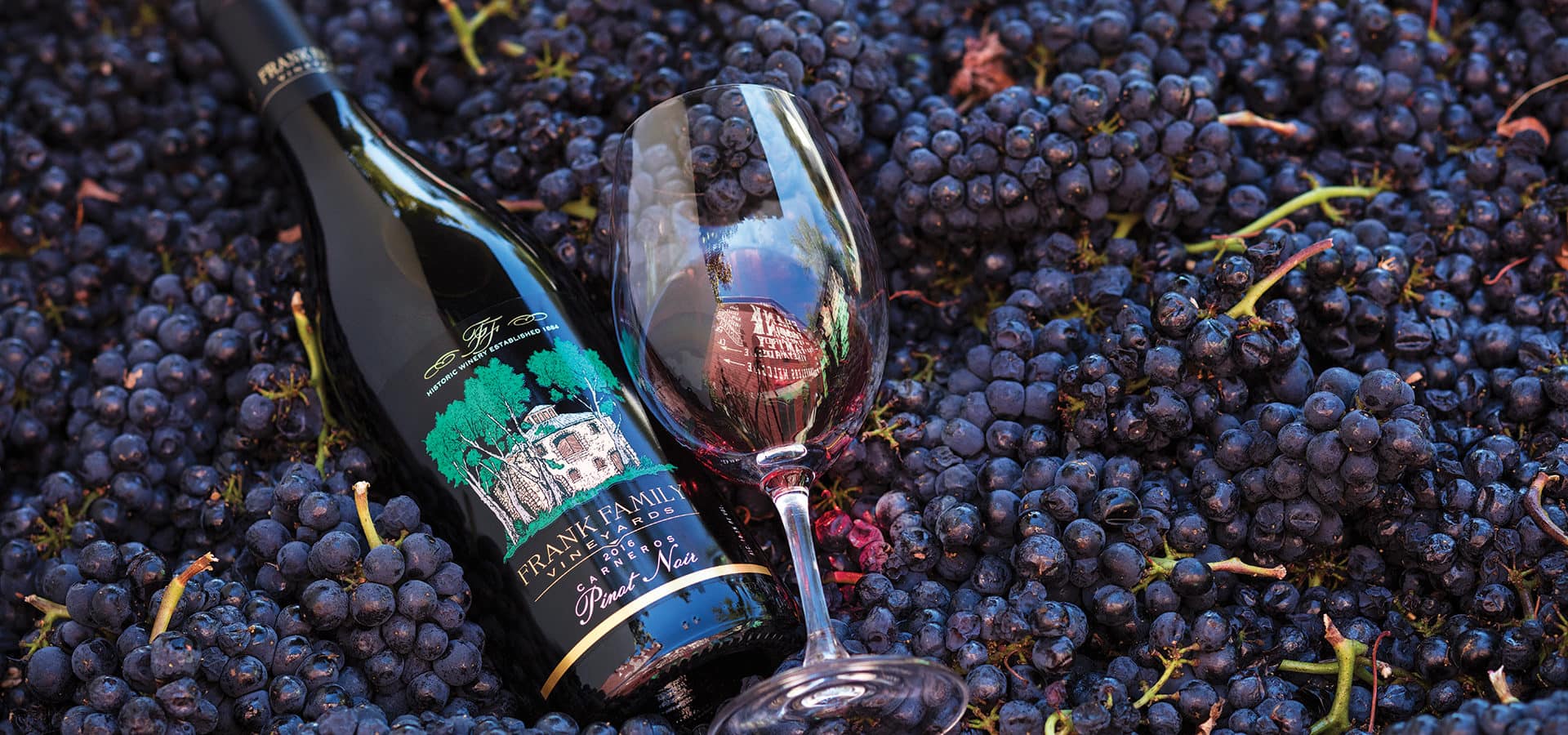
Frank Family produces a wide variety of wines. Where have you seen the largest category growth in recent years?
RF: Frank Family’s cabernet sauvignon and chardonnay have ranked among the 20 most popular wines in Wine & Spirits magazine’s Restaurant Poll Top 50 for seven consecutive years. It is such an honor that fine dining establishments are so loyal to our brand.
We have always sold sparkling wine in our tasting room—we’re probably one of the only producers in California to still hand-riddle every bottle. That is special, and our guests recognize that. Our sparkling wines sell out quickly.
What advice might you give to someone looking to transition from entertainment into the hospitality industry?
RF: The wine business is simple, and it is a lot like entertainment. You need to spend quite a bit of money to produce a vintage of wine, and you should not expect to see a return for a few years. In entertainment, you need that script (the vineyard). You need the actors (the great fruit). You need a director (the winemaker). And if you are planning to make more than you can sell out of your tasting room, you better have a solid plan to distribute the wine before you even make it. Distribution partnerships—in both wine and entertainment—can make or break you … even if it is Oscar-worthy.
A New Docuseries Uncovers SoCal’s Pioneering Role in the Nation’s Aerospace Industry
The series coincides with the 50th anniversary of the historic moon landing.
Get the Latest Stories





